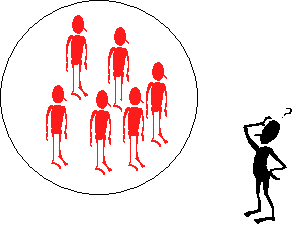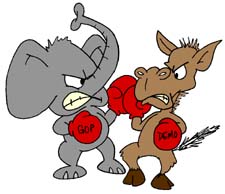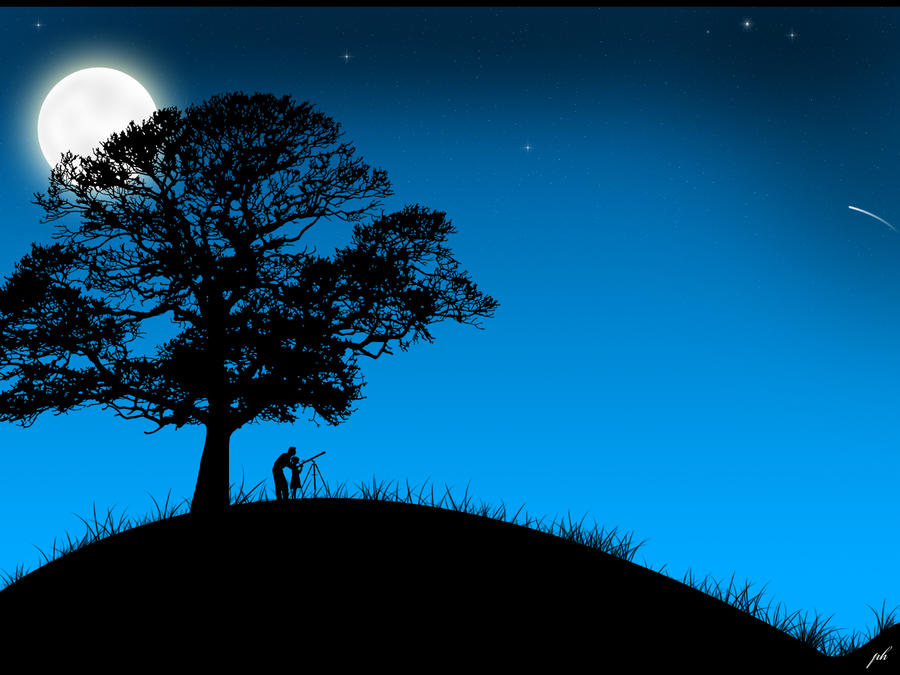It's rather... strange. We have learned that our government has been secretly, and illegally, spying on us for years, and I felt nothing. Some in this country shrugged and said they "have nothing to hide", and I felt nothing. The man who leaked it was charged with espionage, and I felt nothing. In fact, this revelation, which should have elicited so much emotion from a person such as me elicited so much "nothing" that I began to worry.
Was I falling victim to my apathy? I had written an assessment on the topic only six months before, maybe I was falling in to that same trap. But no... no. I was still just as engaged. Apathy is a lot like depression, you just... don't care. Not that you are upset, or even that you are passive, you just have no feeling. Why would you even read about such topics if you were apathetic? It'd be a waste of time.
No, I wasn't experiencing apathy, I was experiencing existential dread. You see, I was in fact hit much harder by this story than I thought at first, but it hit me at such a core level that I didn't even feel it right away.
The Story of Us
The main issue of this story, to me, was that it was not a story exclusively about the evil of big liberal government, or the danger of strong conservative government. In fact among the political elite it seemed to be one of the only things that was enjoying near universal support, and incredibly could keep that support even when the voters cried foul.
 |
| This was not the cause, it was merely the catalyst. |
But it was also about us. This was not thrust upon us, it was begged for. When America experienced "terror", a word which has nearly become impotent at this point, we begged for safety. The best of us and the worst of us. True, some saw this coming. It is quite humbling to me that among the people who advocated for a logical and reasoned approach to national security following the September 11th attacks, not one was young. Not one was at that age where you find the confluence of idealism and energy.
No, they were seasoned, experienced, and all-too-prepared for what was coming.
You see, when they spoke up, it was not Congress or President Bush that needed to quash those ideas. They didn't have to lift a finger. They could stand back and appear like neutral arbiters while the people, us, lashed out in fear.
 |
| People like Noam Chomsky spoke up, but received mostly vitriol in response. |
The First Amendment is supposed to protect speech from government retribution, but nothing can protect speech from the opinion of the public, or from the morality of the mob.
The Story of Them
Like many aspects of our government, the NSA is a closed group that looks out for its own interests. The first priority of any bureaucracy is to perpetuate and expand the bureaucracy. In this sense, there is little that is sinister about many government projects, even the most onerous. The problems arise not out of the encroaching bureaucracy, but the idea of "them".
In any situation, in any circumstance, people divide other people into the in-group and the out-group. For many of us the in-groups we identify with change throughout the day. At home it may be our family or our cohabitants. At work it may be our co-workers of approximately the same responsibility and compensation. As our circumstances change, even moment to moment, we internally modify our concept of the in-group but never to include the entire group.
 |
| The in-group/out-group structures of our mind are powerful, confusing and unconscious. |
But... in a place like the NSA, or the CIA, where your job necessitates separation from the public, this separation will always lead to the formation of an out-group, and in many ways the inverse as well where the public views these institutions as out-groups. When things go wrong, we want to blame the CIA, the FBI, the NSA. Wasn't it your job? Isn't this why we keep you around?
To top it off, by the very nature of their work they can never receive credit for their successes, they will always be blamed for their faults, and will in fact be blamed for many faults that aren't theirs. This, of course, only further divides the public and the intelligence communities into in-groups and out-groups.
The danger is not the bureaucracy itself, it is that the people that make up that bureaucracy see the public as an out-group. This tendency actually has a name: tribalism.
Many within the NSA likely honestly don't believe that there is anything wrong with what they do, or that the fears of many people are so unfounded. They also likely believe that the public is stupid, and can't possibly understand the intricacies of their job and task, or how difficult it can be, or how little it is appreciated.
I do not feel that the behavior revealed by Edward Snowden should be defended. It needs to be abolished and defamed. But we must understand why it happens.
Yes, a few people at the top probably have malicious and terrifying aspirations, but their charisma and magnanimity is not why all the routine workers below them follow through. Dictators do not charm their way to the top, they fight their way there, or more accurately they give you someone to fight against and position themselves as the only ones that can lead that charge.
Our Fall
When I say that we have fallen, I do not mean the United States, I mean our species. Tribalism is alive and well. People manufacture villains and groups to fight against, even when their interests are highly aligned, because they need conflict. Contrary to the Marxist theory of social ordering, I do not believe that this is embodied in a class struggle. Certainly there are classes and there is struggle, but I don't think that's why people feel the way they do; why Republicans and Democrats fight with each other to enact very similar policies.
 |
| We still have tribes, and we still war. |
And that is how we have fallen. We fight with each other on who to kick out of the life raft, completely oblivious to the yacht that carries our leaders past comfortably. Class struggle exists, and the problem that our society has, and indeed nearly all human societies, is not that we refuse to work together and take over the boat our leaders have built for themselves, it's that we still have tribes, we still are sensitive to shifting allegiances and warring groups.
Except in extreme cases, we no longer war with weapons, but we war all the same. In a sense, I suppose we haven't fallen, we have merely been exposed. The information age, which has connected our ideas at speeds which our social structures were never expected to deal with, that our brains were never expected to handle, has exposed our species for the primitive, tribal, aggressive animals we are. We dress it up now, but we are being confronted with our own ugliness, and as always we need that scapegoat, we need that person to blame, that position of responsibility to hold accountable. We need that because anything, anything, is better to our own mind, to our own selves, than facing the ugliness inside.
I am ugly, and scarred, and damaged. I am hateful, and malicious, and tribal. And I don't want to be.
And I don't have to be.
 |
| What will you leave behind? |
When I heard about the NSA PRISM scandal, it did not make me angry or scared or hurt at the level that it hit most people. It hit me at a place of existential survival. My purpose, my reason that I continue existing, is to foster collective benefit for the species as a whole, however I can. I will not be content without changing the world. I may never do that, but that's not the point.
This scandal hit me at a place of existential fear, fear about the very fundamental meaning of our collective will. It prompted the question, "Do we deserve, as a society, to keep improving?" I began to doubt if this was the case, because not only did we beg for this to happen, when it came to light we started fighting in our life raft once again.
But, in the end, I felt that this doesn't change anything. We still deserve that legacy, we still deserve to reach for the stars, even with our faults as they are. My question is no longer if we deserve it, it's if we want it, and that is a much harder question to answer.

No comments:
Post a Comment